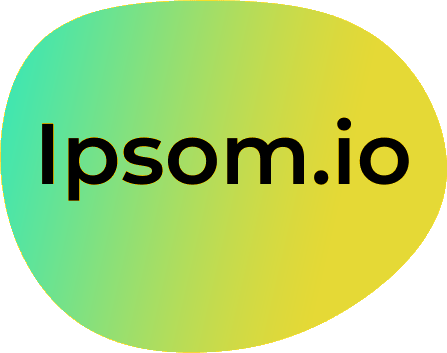Marketing automation is the process of using software to automate repetitive marketing tasks and streamline marketing workflows, enabling businesses to communicate with customers through various platforms like email, social media, web, and text. This automation allows for efficient management of marketing campaigns, leading to improved revenue and operational efficiency.
Key Takeaways
- Definition of Marketing Automation: Automates marketing communications across various platforms, targeting customers with personalized messages based on predetermined workflows.
- Core Functions: Includes lead generation, nurturing, scoring, and measuring ROI on marketing campaigns.
- Benefits: Increases efficiency, reduces human error, allows focus on strategic tasks, and enhances personalization in customer engagement.
- Evaluating Software: Key criteria include automation capabilities, ease of use, integrations, price-to-value ratio, and reporting functionalities.
- Top Tools: Brevo, HubSpot, Omnisend, ActiveCampaign, Klaviyo, Customer.io, Ortto, and Mailchimp each offer unique features and pricing structures tailored to specific business needs.
Explore how to enhance your marketing strategy through automation at ipsom.io.
Understanding Marketing Automation
Marketing automation refers to the use of software to streamline and enhance marketing tasks. It allows businesses to automate repetitive activities, which increases efficiency. Automating marketing processes means that businesses can focus on strategic planning rather than mundane tasks.
What is Marketing Automation?
Marketing automation optimizes communication through various platforms such as email, social media, and web. It allows companies to target customers with personalized messages based on predefined workflows. This personalization improves engagement and can lead to stronger customer relationships.
Importance of Marketing Automation
The importance of marketing automation lies in its ability to free up time for marketers. With automation, teams can shift their focus to higher-level challenges. This shift allows for better strategic planning and the creation of tailored content. By reaching customers with relevant messages, businesses can enhance engagement and drive loyalty.
Key Benefits of Implementing Marketing Automation
Increased Revenue: Automated marketing can lead to more efficient campaigns that drive higher sales.
Maximized Efficiency: By reducing the time spent on repetitive tasks, resources can be allocated to more significant initiatives.
Reduced Human Error: Automation minimizes mistakes in marketing communication. This consistency improves the overall quality of engagement with customers.
Understanding these aspects of marketing automation will pave the way for implementing an effective strategy that enhances business growth.
Core Functions of Marketing Automation
The core functions of marketing automation are vital for optimizing marketing efforts. These functionalities streamline processes and enhance interaction with potential customers. The three main core functions are lead generation, lead nurturing, and measuring ROI.
Lead Generation
Lead generation involves attracting potential customers through automated workflows. Marketing automation systems can help create targeted campaigns that capture leads effectively. Techniques such as landing pages, web forms, and social media advertising can capture interest and turn visitors into leads. Automated follow-ups can further engage these prospects, keeping your brand top-of-mind.
Lead Nurturing and Scoring
Lead nurturing is the process of converting prospects to customers through tailored communication. Automated workflows can send relevant content at critical moments in the buyer's journey.
Lead scoring ranks leads based on their engagement and readiness to convert. This scoring system enables businesses to identify high-priority leads. This targeted approach increases the chance of conversion by delivering the right message to the right audience at the right time.
Measuring ROI
Measuring ROI is vital for assessing the effectiveness of marketing campaigns. Marketing automation platforms provide tools to track campaign performance and their impact on revenue. Analytics dashboards display crucial metrics such as open rates, click-through rates, and conversion rates. Continuous assessment allows businesses to optimize marketing strategies and allocate resources effectively.
Streamlining these core functions leads to improved efficiency and higher revenue for businesses.
Key Features of Marketing Automation Platforms
The key features of marketing automation platforms are essential for optimizing marketing efforts. They enable businesses to execute and manage campaigns effectively while enhancing customer engagement.
Essential Features
-
Campaign Management
- Automates the execution of email campaigns.
- Allows for easy scheduling, segmentation, and personalization.
-
Content Creation Tools
- Simplifies the process of adding targeted content for campaigns.
- Ensures high-quality content production without overwhelming schedules.
-
Lead Management
-
Helps qualify and manage prospects.
-
Ensures accurate nurturing and follow-up of leads to maximize conversion opportunities.
- Analytics and Reporting
- Critical for measuring the impact of marketing efforts.
- Dashboards provide insights into campaign performance, allowing for strategic adjustments.
Integrations and CRM
-
CRM Integration
- Vital for syncing real-time data with other marketing tools.
- Offers comprehensive insights into customer interactions and behaviors.
-
Enhanced Efficiency: A well-integrated marketing automation platform improves overall workflow, ensuring that marketing efforts are data-driven and insightful.
Utilize these features to streamline your marketing workflow at ipsom.io.
Developing a Marketing Automation Strategy
A successful marketing automation strategy begins with clear objectives. Identify your goals, whether it’s increasing brand awareness or enhancing customer engagement. This clarity will guide your entire approach.
Basic Strategy Outline
To create a structured plan, start by mapping the customer journey. Recognize key stages that customers go through. Align your marketing strategies with these stages to ensure relevant communication at every touchpoint. Additionally, defining customer segments is crucial. Classify customers based on personas and lifecycle stages. This allows you to tailor your messages effectively.
Content Assessment and Mapping
Next, conduct a content assessment. Evaluate your existing marketing content to identify gaps. Understanding what you already have helps in planning effective strategies. Create targeted messaging for different customer segments. This alignment improves engagement and encourages conversions.
Experimentation and Personalization
Lastly, emphasize experimentation. Use A/B testing to refine your messaging and methods. Personalize your campaigns to strengthen customer relationships. Tailoring content increases relevancy and boosts response rates. By focusing on these strategies, businesses can harness the full potential of automation to connect meaningfully with their audience.
Popular Marketing Automation Software
Choosing the right marketing automation software is crucial for streamlining marketing efforts. Here are the top eight tools that businesses commonly use:
Top Eight Tools
- Brevo: An affordable all-in-one solution with basic CRM features, ideal for small businesses.
- HubSpot: A comprehensive premium solution recognized for its extensive functionality and user-friendly interface.
- Omnisend: A budget-friendly option for eCommerce, offering essential features available in a free plan.
- ActiveCampaign: Known for its advanced AI capabilities, this tool provides comprehensive workflow automation.
- Klaviyo: Highly regarded for its user-friendly features, specifically tailored for eCommerce businesses.
- Customer.io: Focuses on customizable workflow automation, allowing for tailored communication strategies.
- Ortto: A modular platform with advanced tracking capabilities, ideal for data-driven marketing.
- Mailchimp: Primarily an email marketing tool, Mailchimp also offers comprehensive automation features.
Evaluation Criteria
When evaluating marketing automation software, consider these key criteria:
- Automation capabilities across various channels, including email, social media, and web.
- Ease of use and the availability of customer support for troubleshooting.
- Pricing structure and overall value offered, ensuring it meets your budget and needs.
By selecting the right tools, businesses can enhance their marketing strategies and improve overall efficiency.
Conclusion
Marketing automation is essential for optimizing time management within marketing teams. By automating repetitive tasks, teams can shift their focus to strategic initiatives that drive growth and innovation. This shift leads to improved creativity and effectiveness in marketing campaigns.
Integration of the right tools plays a crucial role in long-term success. Selecting software that seamlessly integrates with existing systems minimizes manual intervention. This harmony between tools ensures that processes run smoothly, leading to enhanced productivity over time.
Empower your marketing strategy today with automation solutions from ipsom.io.
FAQ
What is marketing automation?
- Definition: Marketing automation is the use of software to automate repetitive marketing tasks.
- Functionality: Streamlines workflows, manages campaigns, and communicates with customers across various platforms such as:
- Social media
What are the benefits of using marketing automation?
- Increased Efficiency: Automates routine tasks, allowing teams to work smarter.
- Reduced Human Error: Minimizes mistakes in campaign execution.
- Enhanced Personalization: Tailors communication to individual customer needs.
- Improved Revenue: Drives growth by optimizing marketing efforts.
How does marketing automation improve lead nurturing?
- Targeted Communication: Delivers messages based on prospect behavior and interests.
- Automated Workflows: Guides leads through the sales funnel.
- Higher Conversion Rates: Increases the likelihood of turning leads into customers.
What should I look for when choosing marketing automation software?
- Key Criteria:
- Automation capabilities
- Ease of use
- Integration options
- Pricing
- Reporting functionalities
- Alignment: Choose software that fits your business needs.
Can marketing automation tools integrate with my current CRM?
- Integration Capabilities: Many tools are designed to integrate with existing CRMs.
- Benefits: Allows real-time data synchronization, enhancing your marketing strategy.
How much does marketing automation software typically cost?
- Price Range: Varies widely depending on features and providers.
- Basic plans: Low monthly fees
- Comprehensive solutions: Higher price points
- Evaluation: Consider pricing against the value your business receives.
What are the common mistakes made when implementing marketing automation?
- Common Mistakes:
- Failing to set clear goals
- Not segmenting your audience properly
- Neglecting to review and update automated workflows regularly
- Recommendation: Avoid these pitfalls to maximize automation efforts.
How can I effectively measure ROI from my marketing automation campaigns?
- Analytics Tools: Use tools to track key metrics.
- Focus Areas:
- Conversion rates
- Customer acquisition costs
- Revenue generated from automated campaigns
- Outcome: Provides a clear picture of ROI.
What are some of the best marketing automation platforms available?
- Top Platforms:
- Brevo
- HubSpot
- ActiveCampaign
- Evaluation: Each offers unique features suitable for different business needs; assess their capabilities to find the best fit for your organization.
How does marketing automation enhance customer engagement?
- Personalized Content: Delivers relevant information tailored to individual preferences.
- Timely Communication: Engages customers at the right moments.
- Benefits: Increases customer satisfaction and fosters long-lasting relationships with your brand.






